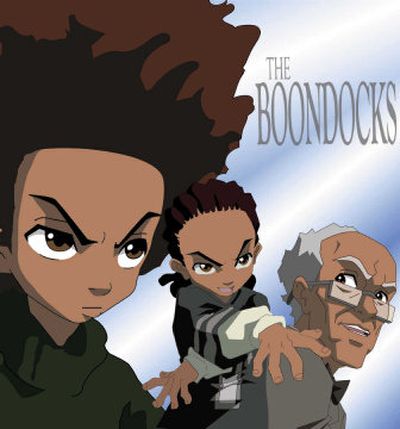New black humor not for everyone

A comic strip called “Ghetto Fabulous.” T-shirts with the words “Uppity Negro” splashed across the chest. A book titled “How to Rent a Negro.”
Welcome to the new black humor. But not everyone is laughing.
It’s a form of satire that gets its power from using racism as a weapon. It’s raw and bites on many levels. And some people in the black community have no patience for it.
There’s no question the statements coming from young black commentators resonate with the masses. Who doesn’t think it’s crazy that rappers are getting $5 million record deals in prison?
But some worry that members of the hip-hop generation are delivering their messages in a way that is too brash, too ignorant, too in-your-face.
The Rev. Al Sharpton came out blasting when the Rev. Martin Luther King Jr. was shown saying the n-word on Aaron McGruder’s animated television series “The Boondocks.”
And the Rev. Jesse Jackson was upset when jokes in the movie “Barbershop” took aim at King sleeping around and questioned Rosa Parks’ role in civil rights history.
“It definitely seems to be a generational clash,” says Robert Brown, assistant dean for undergraduate education at Emory University in Atlanta.
“The younger generation is taking more of an in-your-face approach that is somewhat foreign to older African Americans,” he says. “While some might say that the younger generation folks need to be educated somewhat more, there is a manner in which people are making the commentary that is emblematic of the younger generation.”
There has never been a monolithic way to express blackness. Some people followed King, others were with Malcolm X. Some people favored the Black Panther Party while others didn’t want anything to do with that militant group. Some read the brash works of James Baldwin, while others preferred the steady storytelling of Ralph Ellison
“What we are seeing are the fruits of the black power movement,” says Elizabeth Amelia Hadley, a professor of Africana studies at Simmons College in Boston.
“I get annoyed with the Jesse Jacksons (of the world) who criticized McGruder,” she says. “They were about McGruder’s age when they started protesting.
“We didn’t like Sharpton all the time. We didn’t like Jesse all the time. Even now, young people ask me, what has Jesse ever done?”
The truth is, the hip-hop generation has never experienced Jim Crow laws, never been bused to separate schools, never protested at the lunch counter, never stood in a crowd watching King or Malcolm X or Medgar Evers give a speech. They were not born when the words they now use to market their work were hurled at black people to degrade them.
Some critics feel this discredits them from making such brash statements about black leaders, racism and the social ills of the community.
“I don’t think King using the n-word takes us anywhere,” says Dr. Alvin Poussaint, a professor of psychiatry at Harvard Medical School and an expert on race relations. “It takes you into a negative place that makes us feel it’s not necessary to respect the icons.
“Do I see an overall value in (McGruder’s) comic strip? Yes, I think it takes us to another level of humor and perspective. But where should the line be?”
Daphne Brooks, a professor at Princeton University who’s working on a book about black feminist satire, says the diversity of voices is what keeps the black community alive.
“You have to realize leaders, such as Sharpton, are very much mainstream,” adds Maya Rockeymoore, a political scientist and author of “The Political Action Handbook: A How To Guide For The Hip Hop Generation” (Fourth Generation Press, 2004).
“They wear business suits. They walk a very fine line. They make sure they don’t go over a certain edge. Satire – whether it be a Web site, a comic strip or T-shirt – allows you to slip in there and give a cutting-edge message.”
And those messages need to be heard, Rockeymoore says.
“If we are truly trying move our community to a place where we minimize poverty and ensure people have opportunities,” she says, “there are some hard-hitting truths we are going to have to talk about more openly.”